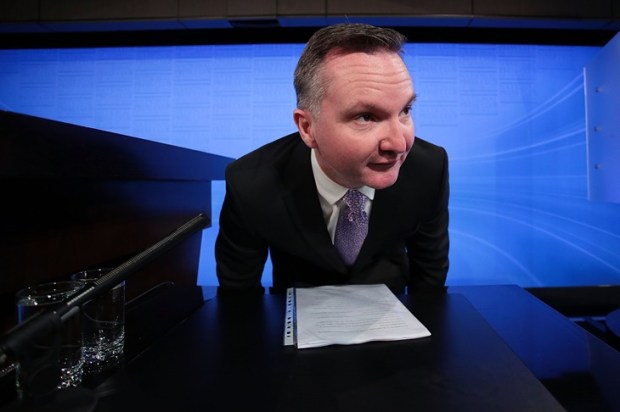Alexandra Marshall recently noted Peter Dutton’s support of the e-Safety Commissioner where he said, ‘Julie Inman Grant is one of the finest public servants in the employment of the Commonwealth of Australia.’ That stirred memories of the time he took to take a position on The (racist) Voice to Parliament. Apparently, the credibility of the Liberal Party is hanging by a thread and if it is worth saving we had better get on with it or we will lose it.
The Liberal Party in NSW has been torn ever since the 1960s when the pinks and greens in the party called themselves moderates and branded their opponents as troglodytes. Now the pinks and greens dominate the party in all the states and they exert enough control at the federal level to stall good policies even when the Coalition is in office for years on end.
There have been calls to redefine the aims of the party to regenerate genuine liberalism as envisaged by the founder, Robert Menzies. One suggestion is ‘hippie conservatism’, which involves combining the love of freedom and enterprise with the integrity and stability of conservatism at its best.
One of our problems is the near-universal use of the left-to-right spectrum to locate people and positions in political and ideological space. Melanie Phillips articulated what some people have been saying for a long time.
‘While the left is an identifiable thing supporting big government, universalist ideologies, and disdain for the nation, the “right” supposedly includes conservatives and free-market liberals; “centrist dads” such as David Cameron and populist disrupters like Nigel Farage; born-again Europhiles like Meloni; and risen-from-the-dead neo-Nazis such as the AfD… The term ‘right-wing’ is used chiefly as an insult for anyone who stands against the groupthink of received liberal opinion.’
As I have often observed, the term right-wing has no clear meaning and the usual rejoinder is ‘everyone knows what we mean’.
Yes and no. It tells us which party faction people belong to but the labels don’t indicate a coherent body of principles to guide their policies when they have the power to implement them. In the absence of clarity about the core values that are opposed to leftism, the left control the narrative and most people learn early in life that the ‘right’ is bad and wrong, especially the ‘far right’ that is evil incarnate.
So, what does hippy conservatism mean in practice? Let’s consider five pillars of policy to promote peace freedom and prosperity
First, critical rationalism, expounded by Karl Popper. The attitude ‘you may be right and I may be wrong and with an effort we may be able to get nearer the truth’. That is the spirit of imaginative criticism which has driven science at its best and it can be applied in all aspects of life and public policy.
Second, in politics, the principles of classical or non-collectivist liberalism: a cluster of freedoms (speech, assembly, movement, religious belief etc); equal opportunity under the rule of law; due process, protection of property rights; laws apply to individuals, not groups; and laws should not discriminate for or against people in any social, ethnic or religious group.
Third, good economics involves free trade tempered by sensible regulations that don’t reward rent-seeking by special interests. This approach incorporates key insights of Austrian economics, including the role of entrepreneurial initiatives in driving economic progress and the relationship between markets and the framework of the law and other institutions.
Fourth, a robust moral framework including honesty, compassion, civility, personal responsibility, community service, and enterprise.
Fifth, abundant, reliable, and cheap energy. This has to be recognised and defended because this pillar is seriously threatened by powerful forces that are driving policies to make electricity more expensive and less reliable, with catastrophic human and environmental impacts. And vulnerable to wind droughts. It is not entirely fanciful to plan a book titled How Wind Droughts Almost Destroyed Civilisation.
These principles would underpin a vigorous commercial civilisation with an equally vigorous civic culture, supporting human rights without legalism and bureaucracy. Health, education, and welfare could be provided by a mix of private and public services to maximise efficiency and minimise long-term dependency (in the case of welfare).
Anywhere in the world where conditions are improving in a sustainable manner, one or more of the pillars are the active ingredients in the policy mix, which of course cannot be found anywhere in a pure form.
In the absence of a visible and clearly articulated ‘Radical Centre’ of classical liberalism or hippie conservatism, most people take on some version of social democracy which has attractive slogans. So Big Government intervention achieved bipartisan support while left-liberalism morphed from the support of civil rights to become a vehicle of savage intolerance.
It remains to be seen whether enough Liberals care enough about peace, freedom and prosperity to embrace hippy conservatism and make the Liberal Party Great.

























